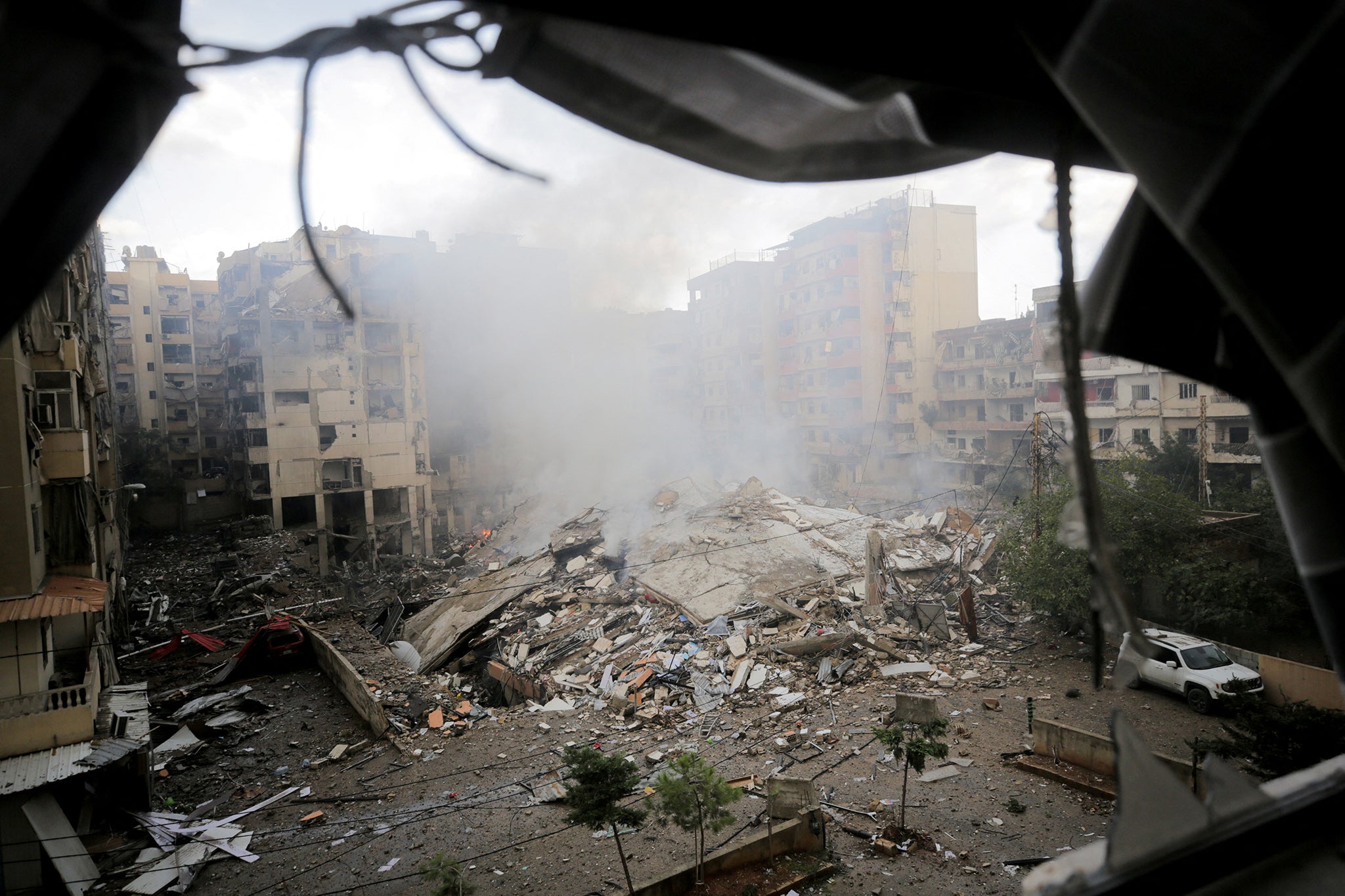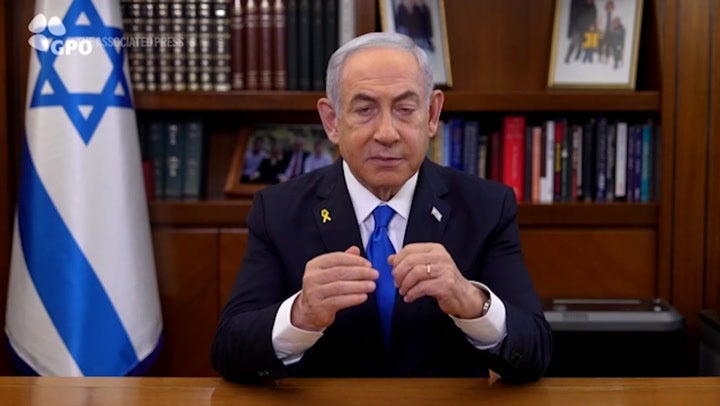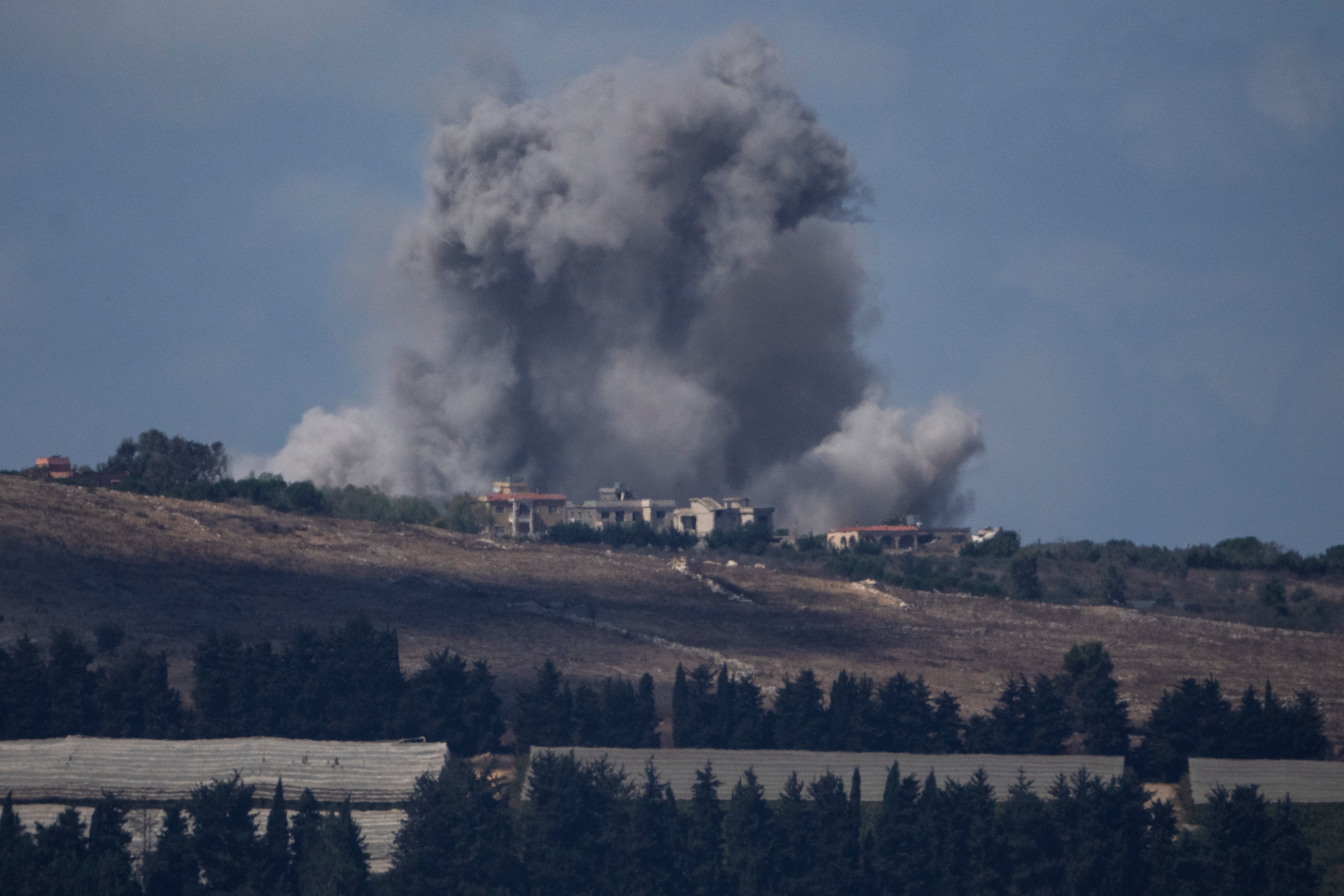The Middle East is “closer than ever before” to an all-out war after Iran’s ballistic missile attack on Israel, experts have said.
Iran fired around 180 missiles at Israel on Tuesday night, less than 24 hours after Israel started a ground invasion of southern Lebanon, where it is currently engaged in intense fighting with Iranian-backed Hezbollah forces.
Videos showed missiles streaking across the sky and blowing up as Israel’s Iron Dome defence system was deployed, preventing the vast majority of Iranian missiles from landing.
It comes after weeks of escalation, with a heavy Israeli bombardment of southern Lebanon and Beirut leading to more than 1,000 deaths, according to the Lebanese health ministry. The strikes have also killed a number of Hezbollah commanders.
With Israel expected to retaliate to the Iranian missiles – while its invasions of both Lebanon and Gaza both continue – tensions are only set to increase.
Professor Yossi Mekkelberg, an Associate Fellow with Chatham House’s Middle East and North Africa Programme, told The Independent: “We’re closer than ever before. There is no doubt about that. We haven’t seen something like this before.

“Israel promised – and there’s no reason to doubt – that it’s going to retaliate in a fashion which is way more severe than back in April when it was very targeted.
He added: “In a way its lucky that there are not many casualties yesterday. But obviously the scale of the retaliation is conditioned on the damage.
“So retaliation will come, but the question is what will the Iranians do? We are close [to all out war] because there is tit-for-tat which will continue.
“Now that one of Iran’s main forces in the region [Hezbollah] has suffered severely, reduced capabilities, leadership decimated, they are forced to do something that they didn’t want to do for many years: to act directly.”
Prof Mekkelberg adds that we “can’t exclude” political motivations – in other words the Israeli Prime Minister Benjamin Netanyahu’s willingness to avoid political turmoil facing him at home – when judging the scale of Israel’s response.

“We’ve seen it throughout the year, including the ceasefire with Hamas and the release of the hostages. It’s not unsubstantiated argument to say that Mr Netanyahu is very much guided by his own political survival and what happens in his corruption trial.
“But there are also other people that might try to stop him with doing something which is endangering Israel.”
This was echoed by a former Israeli official who wished to remain unnamed, who told The Independent that Netanyahu’s “political survival” is the “most important thing to him and to some of the members of his coalition”.
The reframing of the national debate within Israel away from failures in Gaza and towards the Iranian threat is “positive” for Mr Netanyahu, the official added.
Josh Krasna, a former Israeli diplomat and senior fellow in the Foreign Policy Research Institute’s Middle East Programme, says Iran is weakened by Israel’s current conflict with Hezbollah.

“For the past at least almost 20 years, Iran has been depending for its deterrence on Israel on the fact that it built up Hezbollah military force.
“Hezbollah probably has significant capabilities that are left, but the command and control structure has been severely retreated. So if Iran is depending on its ability to strike Israel from the homeland, that’s going to be difficult for them.”
Only few Iranian missiles landed in Israeli territory – which means Israel “does not have to react immediately”, Dr Krasna said.
“If the attack had killed dozens or hundreds of people, if it would have been under pressure, react immediately.
“Because of the [limited] nature of the damage that the attack caused, Israel has the ability to pursue an operational plan which can be well thought out.”

While Dr Krasna says Israel will retaliate, adding that it could strike Iran’s nuclear research sites, he says a wider regional war is unlikely.
“Jordan’s not going to war in Israel. Then Egypt’s not going to war against Israel. Then Algeria and Libya – you see what I’m saying.
“People start talking about a world war, they start frightening themselves, but neither Russia nor China is going to stand by Iran and begin using weapons.”
Matthew Savill, the military sciences director of RUSI, a defence and security thinktank, also said Israel’s response could vary given few missiles landed.
“At the lower end of the spectrum would be a reminder of its conventional superiority, striking Iranian military targets which emphasise and widen that gap, such as missile defence and radar sites inside Iran.
“Moving up the scale, ports or Iranian infrastructure, including oil production facilities, could be attacked to emphasise the damage that Israel can do to Iran.
“At the top end would be senior Iranian officials and the Iranian nuclear programme.
Mr Savill said the latter options carry significant risk: “A strike now [on nuclear targets] might encourage Iran to believe that weaponisation is its only remaining defence. This is also true if the scale of any strikes against the wider military or leadership makes it thinks the threat is existential.”

